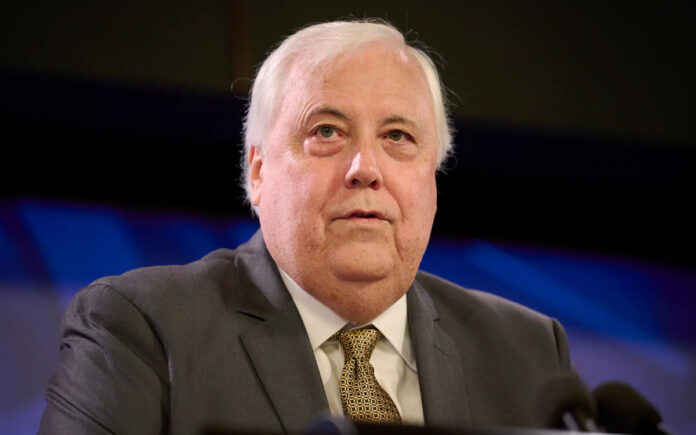Sydney: Australian mining magnate Clive Palmer on Wednesday launched a new political party, the Trumpet of Patriots, which he says draws direct inspiration from former U.S. President Donald Trump. The announcement comes just months ahead of Australia’s federal election.
Palmer, a billionaire businessman known for his populist political ventures, declared that his party aims to “drain the swamp” in Canberra—a phrase widely associated with Trump’s push to reduce the size of government.
“We think Donald Trump’s been very effective in reducing public expenditure,” Palmer said during a news conference unveiling the party.
Clive Palmer, an Australian billionaire, launches a new political party that he said was directly inspired by US President Donald Trump, months out from a nationwide federal election https://t.co/cwqCNsRDKa pic.twitter.com/WRBD8SkMyZ
— Reuters (@Reuters) February 19, 2025
Echoing Trump’s policies, Palmer voiced opposition to mass immigration and affirmed that the Trumpet of Patriots would officially recognize only two genders.
Palmer announced that his party intends to contest all 150 seats in the lower house, as well as seats in the upper house, the Senate.
As one of Australia’s wealthiest individuals—ranked 18th with a net worth of $2.1 billion, according to Forbes—Palmer is no stranger to political campaigns. He previously led the right-wing United Australia Party (UAP) and served as a lower house lawmaker from 2013 to 2016.
Also Read | Ex-South Korean Officials Found Guilty in Controversial North Korean Fishermen Deportation Case
During the last federal election, Palmer reportedly spent around A$100 million ($63.52 million) on UAP’s campaign, resulting in the party securing only one Senate seat. However, he failed to register UAP in time for this year’s election, prompting the creation of his new party.
Also Read | Beijing Vows Increased Financial Support for Private Businesses
Australia’s next federal election must be held by May, though Prime Minister Anthony Albanese has yet to set a date. Speculation suggests the poll could be scheduled as early as March, following the central bank’s recent interest rate cut—a move that could bolster the government amid declining public support due to cost-of-living pressures.



